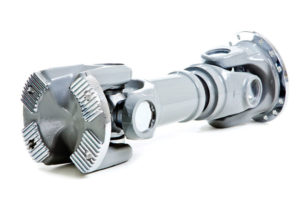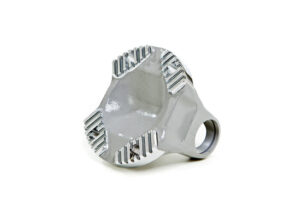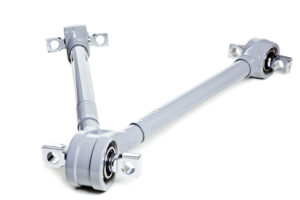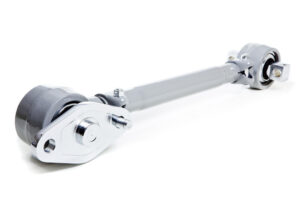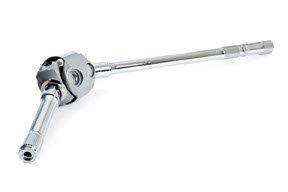General Conditions of Purchase.
WiCHMANN GmbH (Status: Nov. 2024)
- General, scope, performance description
1.1 These general terms and conditions of purchase (hereinafter also: GTCP) shall apply to all business relationships with our business partners and suppliers (hereinafter: suppliers). These general terms and conditions of purchase shall apply exclusively. Conflicting or deviating terms and conditions of the supplier shall not be recognised unless we have expressly agreed to their validity in writing. Our GTCP shall apply even if the supplier’s delivery is accepted unconditionally in the knowledge that its terms and conditions conflict with or deviate from our GTCP. The GTCP shall also apply to all future transactions with the supplier.
1.2 All agreements concluded between us and the supplier for the purpose of executing an order shall be documented in writing. The parties shall confirm verbal agreements in writing.
1.3 Contractually relevant correspondence shall be conducted exclusively with the ‘Purchasing’ department. Significant legal declarations and notifications on the part of other units or departments shall require the express approval of the ‘Purchasing’ department. Invoicing to our CSN franchisees or partner companies shall therefore also be expressly ruled out. Any enquiries or purchase orders from CSN franchisees or partner companies shall be immediately forwarded to WiCHMANN GmbH in Lotte and shall not be acted on under any circumstances.
- Purchase orders, order forwarding, WiCHMANN article and purchase order numbers
2.1 Our purchase orders shall be non-binding until they have been accepted by the supplier. Verbal or telephone purchase orders shall be confirmed by us in writing for purposes of proof.
2.2 The supplier shall not be entitled to assign its obligations arising from the order or significant parts of the order to third parties without our prior approval.
2.3 Purchase orders shall be accepted by the supplier in writing within one week as of the purchase order date.
2.4 The WiCHMANN article numbers listed on the purchase order shall be specified on the order confirmation, the delivery note and the invoice. The WiCHMANN purchase order numbers shall be clearly documented on the order confirmation, the delivery note, the invoice, the bill of lading and the package sticker.
- Prices, terms of payment, invoices
3.1 The prices specified in the purchase order shall be binding and include delivery DDP and packaging. The prices shall include the statutory value added tax, insofar as this is not disclosed separately. Payment of the agreed price shall be due within 60 days as of complete delivery and performance, including any acceptance, as well as the receipt of a proper invoice which reveals the assignment characteristics specified in 2.4. If we pay within 14 calendar days, the supplier shall grant us a discount of 3%.
3.2 The invoice shall comply with the regulations of the German Value Added Tax Act and shall be sent in duplicate by mail to the address specified on the purchase order or shall be sent in PDF format by e-mail to the specifically stated address, stating the assignment characteristics specified in 2.4.
3.3 Claims arising from deliveries to us may only be assigned to third parties subject to agreement.
3.4 We shall be entitled to offsetting rights and rights of retention to the extent provided by law. In particular, we shall be entitled to retain due payments as long as we are still entitled to claims against the supplier arising from incomplete or defective deliveries.
3.5 The supplier shall only have an offsetting right or right of retention due to counterclaims that have been recognised by a declaratory judgement or are undisputed.
- Delivery, dates, delay
4.1 The delivery time or the delivery date specified by us in the purchase order shall be binding. Deviations shall only be permissible subject to our prior approval. The receipt of the goods at our premises shall be authoritative as regards adherence to the delivery time or the delivery date.
4.2 The supplier shall be obliged to notify us immediately in writing if circumstances preventing adherence to the stipulated delivery time occur or become apparent to it. This notification shall not release the supplier from its obligations to deliver on time; in this respect, we shall reserve the right to assert further rights and claims due to delays in delivery or default in delivery..
4.3 We shall be entitled to the statutory rights in the event of delayed delivery. In particular, we shall be entitled to demand damages instead of performance following the fruitless expiry of an appropriate period of grace. No additional period of grace shall be necessary for this if the law states that setting an additional period of grace to substantiate the delay can be forgone. If we demand damages, the supplier shall also be entitled to prove that it is not responsible for this breach of duty.
4.4 Partial and excess deliveries shall always be impermissible unless we have expressly approved them.
4.5 The values determined during the goods receiving inspection shall be authoritative as regards quantities, weights and dimensions. Deviating quantities, weights and dimensions shall be recorded by us in a debit note/credit note and sent to the supplier for its attention.
4.6 Shipments that are undertaken incorrectly by the supplier in terms of the method of shipping, weights, dimensions and packaging shall entitle us to charge for the additional expenses incurred. Debit notes/credit notes shall be offset by us in the event of payment in good time.
4.7 The goods receiving hours are Monday through Friday from 7 a.m. to 3 p.m. No incoming deliveries will be accepted outside of these hours.
- Warranty
5.1 Unless otherwise specified in the following, the statutory regulations shall apply to our rights in the event of material defects and defects of title in the goods, including incorrect and short deliveries as well as improper assembly, incorrect assembly or operating instructions, and in the event of other breaches of duty by the seller.
5.2 The supplier shall particularly bear liability for ensuring that the goods have the agreed characteristics at the time at which the risk passes to us. The product descriptions that are the subject of the respective contract, particularly through being designated or referred to in our purchase order, or which were incorporated into the contract in the same way as these GTCP shall always be regarded as an agreement concerning the characteristics. It shall be irrelevant in this case whether the product description originates from us, the supplier or the manufacturer.
5.3 In deviation from Section 442 (1) sentence 2 of the German Civil Code (BGB), we shall also be unreservedly entitled to claims for defects if the defect remained unknown to us on contract completion as a result of gross negligence.
5.4 The statutory regulations (Sections 377, 381 of the German Commercial Code (HGB)) shall apply to the commercial duty to examine and issue a complaint regarding defects with the following proviso: our duty to examine shall be limited to defects that become apparent through external examination during our goods receiving inspection, including the delivery documents, and through random sampling during our quality control (e.g. transport damage, incorrect and short deliveries). No duty to examine shall exist if acceptance has been agreed. This shall depend in all other regards on the extent to which examination is feasible in the ordinary course of business, subject to consideration of the circumstances of the individual case. The complaint shall be in good time insofar as it is received by the supplier within a period of 10 working days, calculated as of receipt of the goods or, in the case of hidden defects, as of discovery.
5.5 The supplier shall bear the costs incurred for the purpose of inspection and rectification even if it emerges that no defect was actually present. Our liability for damages in the event that our demand for the rectification of defects is unjustified shall remain unaffected; we shall only bear liability in this regard, however, if we have recognised, or have been grossly negligent in not recognising, that no defect was present.
5.6 If the supplier fails to meets its obligation of subsequent performance by eliminating the defect (rectification) or by supplying a defect-free item (supplying a replacement) as we so choose within an appropriate period of grace set by us, we may eliminate the defect ourselves and demand reimbursement of the expenses required for this or an appropriate advance payment from the supplier. Setting a period of grace shall not be necessary if subsequent performance by the supplier has failed or is unreasonable for us (e.g. due to particular urgency, jeopardisation of operating safety or the impending occurrence of disproportionate damage); the supplier shall be informed immediately, in advance if possible.
5.7 We shall additionally be entitled to reduce the purchase price or to withdraw from the contract in accordance with the statutory regulations in the event of a material defect or defect of title. We shall also have an entitlement to compensation for damages and expenses in accordance with the statutory regulations.
- Supplier recourse
6.1 We shall be unreservedly entitled to our statutory rights of recourse within a supply chain (supplier recourse pursuant to Sections 478, 479 BGB) in addition to claims for defects. We shall particularly be entitled to demand precisely the manner of subsequent performance (rectification or supplying a replacement) from the supplier that we owe our customer in the individual case. Our statutory right of choice (Section 439 (1) BGB) shall not be restricted as a result of this.
6.2 Before we acknowledge or fulfil a defect claim asserted by our customer (including compensation for expenses pursuant to Sections 478 (3), 439 (2) BGB), we shall notify the supplier and request a written statement that briefly outlines the facts. If no statement is forthcoming within an appropriate period of grace and if no amicable solution is reached, the defect claim actually granted by us shall be regarded as owed to our customer; the supplier shall be obliged to provide proof to the contrary in this case.
6.3 Our claims arising from supplier recourse shall apply even if the goods have been further processed by us or one of our customers, e.g. by being incorporated into another product, prior to their sale to a consumer.
- Product liability
7.1 In the event of a claim being asserted against us as a result of product liability, the supplier shall be obliged to indemnify us against third-party claims insofar as the cause lies within its sphere of control and organisation and it bears liability itself vis-à-vis third parties.
7.2 The supplier shall bear all costs and expenses in the cases specified in 7.1, including the costs of bringing any action.
7.3 In the context of its duty of indemnification, the supplier shall reimburse expenses arising from or in connection with a third-party claim, including recall campaigns undertaken by us. Insofar as is possible and reasonable, we shall inform the supplier about the content and scope of recall measures and provide it with the opportunity to issue a statement. More far-reaching legal rights shall remain unaffected.
7.4 The supplier shall undertake to maintain product liability insurance with an insured amount of €3,000,000 per instance of personal injury/property damage (flat rate) throughout the life of this contract, i.e. until the limitation period for defect claims expires; this shall have no bearing on any further claims for damages to which we are entitled.
- Statute of limitations
8.1 Unless specified otherwise in the following, the mutual claims of the contracting parties shall fall under the statute of limitations in accordance with the statutory regulations.
8.2 In deviation from Section 438 (1) (3) BGB, the general limitation period for defect claims shall be three years as of the passage of risk. If acceptance is agreed, the limitation period shall commence on acceptance. The three-year limitation period shall also apply accordingly to claims arising from defects of title, whereby the statutory limitation period for third-party claims in rem for the surrender of property (Section 438 (1) (1) BGB) shall remain unaffected; in addition, claims arising from defects of title shall never fall under the statute of limitations as long as the third party can still assert the right, particularly in the absence of a limitation period, against us.
8.3 The limitation periods of sales law, including the aforementioned extension, shall apply within the statutory scope to all contractual defect claims. Insofar as we are also entitled to non-contractual claims for damages due to a defect, the regular statutory limitation period (Sections 195, 199 BGB) shall apply in this regard, unless the application of the limitation periods of sales law leads to a longer limitation period in the individual case.
- Limitation of liability
9.1 Claims against us on the part of the supplier for damages, irrespective of the legal ground, shall be excluded. The exception to this shall be damages arising from loss of life, bodily injuries or damage to health that are due to a culpable breach of duty committed by us or our auxiliary staff and other damages arising from an intentional or grossly negligent breach of duty committed by us or our auxiliary staff.
9.2 If damage which is not damage arising from loss of life, bodily injuries or damage to health is based on the simple, negligent breach of an essential contractual obligation or on the simple, negligent breach of an obligation whose fulfilment enables the proper performance of the contract in the first place and on whose compliance the supplier may regularly rely, we shall also bear liability for such damage. In these cases, however, liability shall be limited to the foreseeable damage that typically occurs.
9.3 Insofar as we have ruled out or limited our liability, this shall apply in equal measure to the personal liability of our employees, vicarious agents or other auxiliary staff.
- Property rights
10.1 The supplier shall ensure that no third-party rights are violated in connection with its delivery.
10.2 If a claim is made against us by a third party as a result of this, the supplier shall be obliged to indemnify us against these claims when first requested to do so in writing; we shall not be entitled to conclude any agreements, particularly to reach a settlement with the third party, without the approval of the supplier.
10.3 The supplier’s duty of indemnification shall refer to all expenses necessarily incurred by us as a result of or in connection with a claim made against us by a third party.
- Retention of ownership, provision and co-ownership
11.1 If the supplier requests the agreement of retention of ownership, we shall only recognise simple retention of ownership. Unless expressly confirmed otherwise by us, the regulation of extended or expanded retention of ownership shall be ruled out.
11.2 Insofar as we provide materials, parts, containers and special packaging as well as other items and packaging to the supplier, we shall reserve ownership of them. They shall only be used as intended. Processing and conversion by the supplier shall be undertaken for us. If processing with other items that do not belong to us is carried out, we shall obtain co-ownership of the new item in the ratio of the value of our item to the other processed items at the time of processing.
11.3 If the item provided by us is inseparably mixed with other items that do not belong to us, we shall obtain co-ownership of the new item in the ratio of the value of the item subject to retention of ownership to the other mixed items at the time of mixing. If mixing is carried out in such a way that the supplier’s item is to be considered the main item, the supplier’s transferring pro-rata co-ownership to us shall be regarded as agreed; the supplier shall safeguard sole ownership or co-ownership for us.
- Documents, proprietary rights and confidentiality
12.1 We shall reserve the proprietary rights and copyrights to illustrations, drawings, calculations and other documents. They shall be used exclusively for manufacturing based on our purchase order.
12.2 The supplier shall be obliged to maintain the secrecy of all illustrations, drawings, calculations, other documents and information that it receives; they may only be disclosed to third parties with our express approval. The supplier shall also oblige its vicarious agents (employees or third parties) to maintain secrecy.
12.3 The obligation to maintain secrecy shall continue to apply after this contract has been wound up; it shall expire if and insofar as the manufacturing knowledge contained in the illustrations, drawings, calculations and other documents that have been transferred has become generally known.
- Advertising
The use of our company names, trademarks and other property rights for advertising purposes, particularly through references in promotional materials and the like, shall only be permitted with our express prior approval.
- Selection of suppliers
14.1 In order to ensure the long-term environmental soundness of our products and processes on one hand and that of our employees’ behaviour on the other hand, we maintain an environmental management system according to DIN EN ISO 14001.
14.2 We additionally operate an energy management system according to DIN EN ISO 50001 with the objective of constantly improving our energy efficiency. Our fundamental rules of conduct are therefore aimed at ensuring that our production is environmentally sound and that we reduce our energy consumption.
Our suppliers and service providers are requested to actively support us in order to achieve our objectives. In addition to price and cost effectiveness, the environmental compatibility and energy efficiency of products and services therefore also constitute essential purchasing criteria when procuring of goods and services.
We shall reserve the right to check this at our contractors’ premises subject to coordination during the course of quality audits.
To give appropriate consideration to environmental protection and especially energy efficiency aspects, WiCHMANN GmbH shall give preference to companies with a certified energy management system according to the DIN EN ISO 50001 standard in the context of the procurement process on submission of similar offers. The efficiency criteria of the energy evaluation as well as the planned or expected service life of the energy-consuming products to be procured shall be taken into consideration in this process.
- Environmental protection, human rights
The supplier shall be obliged to adhere to the respective statutory regulations regarding the treatment of employees, environmental protection and occupational safety and to commit to reducing the disadvantageous impacts of its activities on man and the environment. The supplier shall additionally observe the principles of the UN’s Global Compact initiative. These are essentially concerned with the protection of international human rights, the abolition of forced labour and child labour, the elimination of discrimination in recruiting and employment, taking responsibility for the environment and the prevention of corruption.
- Fair competition
Adherence to the relevant statutory regulations is of primary importance to us, and we also expect our business partners to observe the applicable laws and regulations. In particular, no benefits (e.g. gifts, invitations to attend sports or other events, invitations to restaurants, financial benefits, other privileges, discounts of any kind) shall be offered, promised or granted to our employees or a third party in return for preferential treatment being unfairly given to the person concerned or another person by the employee when procuring goods or services.
- Legal venue, applicable law, place of performance
17.1 Insofar as the supplier is a merchant, a public law entity or a special fund under public law, the exclusive – also international – legal venue for all disputes arising from the contractual relationship shall be our place of business in Lotte. However, we shall also be entitled to institute legal proceedings against the supplier at its general legal venue (place of business).
17.2 The contractual relationship shall be subject to German law. The application of the UN Convention on Contracts for the International Sale of Goods (CISG) shall be ruled out.
17.3 Unless otherwise expressly agreed, the place of performance shall be our place of business in Lotte.

